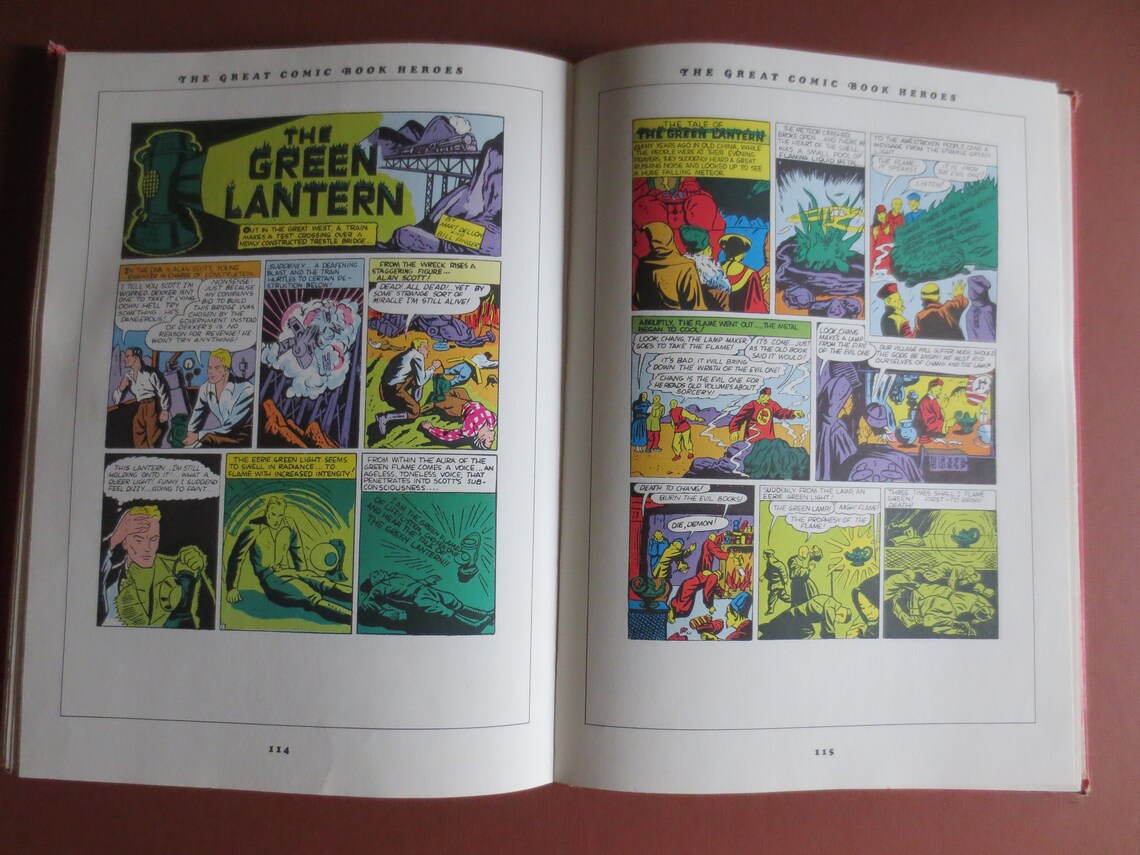

Doctorow shared Feiffer’s love of comics and thought they merited serious consideration. The idea for Comic Book Heroes came from E.

Its development is treated in Martha Far’s Out of Line: The Art of Jules Feiffer (Abrams, 2015): The Great Comic Book Heroes also comes with a creation story and has had a lasting influence in the comics community.

in addition, one panel of Sheena appears on page 31, reproduced from Jumbo Comics #10 (Fiction House, October-November 1939).The Spirit #60 (Register and Tribune Syndicate, July 20, 1941), “The Spirit in Damascus”.Police Comics #1 (Quality, August 1941), “The Origin of Plastic Man”.Captain America Comics #1 (Timely, March 1941), “Case No.Marvel Mystery Comics #7 (Timely, May 1940), “Rampage in New York”.Wonder Woman #2 (National, Fall 1942), “Wonder Woman Fights Mammotha and Mars”.Flash Comics #5 (National, May 1940), “The Sect of Assassins”.All-Star Comics #1 (National, Summer 1940), “The Cliffland Arson Murders”.All-American Comics #16 (National, July 1940), “The Origin of Green Lantern”.Flash Comics #1 (National, January 1940), “The Origin of the Flash”.Marvel Mystery Comics #19 (Timely, May 1941), “The Hag”.Batman #1 (National, Spring 1940 reprinted from Detective Comics #33 and #34 ), “The Legend of the Batman - Who He is and How He Came to Be” and “Batman Meets the Joker”.

Whiz Comics #1 (Fawcett, February 1940), “The Origin of Captain Marvel”.Superman #3 (National, Winter 1939-40 reprinted from Action Comics #5 ), “Superman and the Dam”.Superman #1 (National, Summer 1939), “The Origin of Superman”.(This prose has been reprinted a number of times-see below-and are available online.) These prose pieces are widely credited with elevating superhero comics within literary circles, as Feiffer was a long-time staff cartoonist at The Village Voice, playwright, and Oscar winner, who was actively involved in producing a variety of collections of his cartoons and stand-along comics throughout the 1960s. Comic Book Heroes brought these stories back in to print before the now-popular lines of corporate reprint volumes and also contained a forty page introductory essay (and a five page afterword), combining personal reflection and some analysis, by Feiffer. Presented as a sturdy hardcover with acid-free pages, the collection presented recolored versions of early stories, mostly from the late 1930s and early 1940s from a handfull of the largest comics publishers, featuring the likes of Batman, Captain America, The Spirit, Superman, and Wonder Woman. Jules Feiffer’s The Great Comic Book Heroes (1965) was an unusual reprint collection of superhero comics, put out by the prestigious Dial Press.


 0 kommentar(er)
0 kommentar(er)
